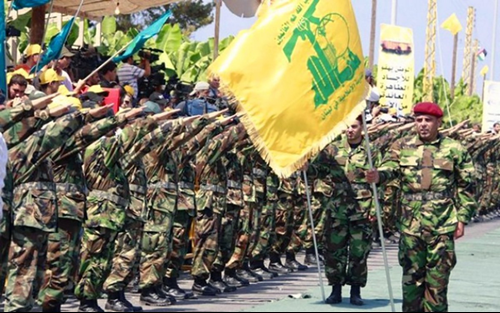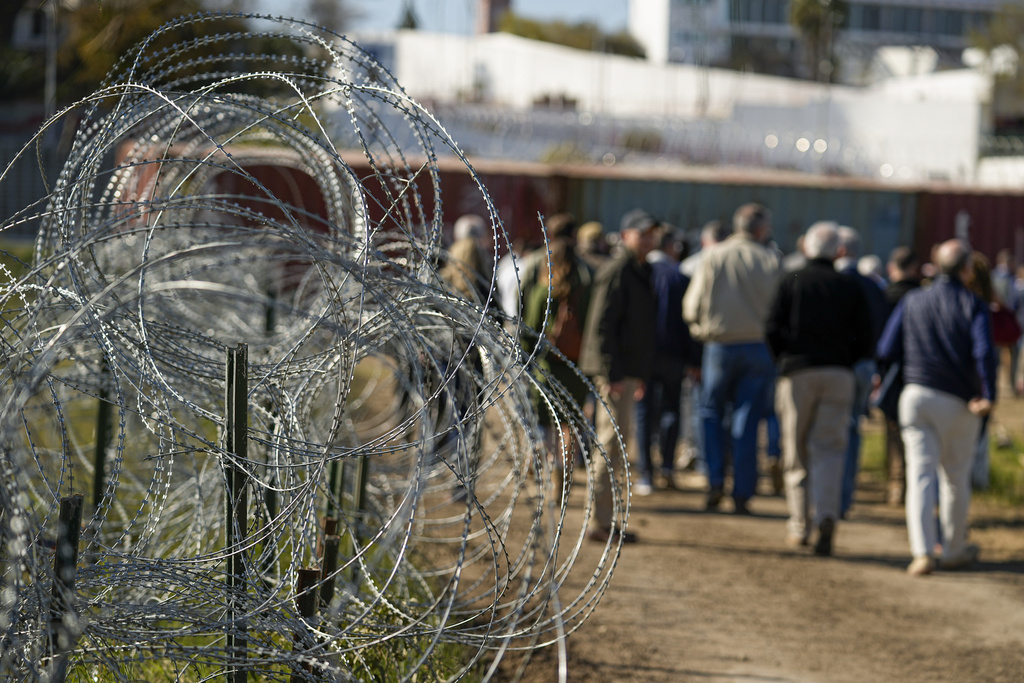Monday was one of its darkest days as 24 IDF soldiers died while trying to use their own explosives to demolish Palestinian buildings and create a buffer zone between Israel and the border, according to The New York Times.
Soldiers were inside the buildings when Gazan militants fired on an Israeli tank guarding the unit, setting off the explosives before the buildings collapsed, the IDF said.
“It’s a big blow to the country, a big blow to the families, but we must go on because this is really a war for Israel’s survival,” Caroline Glick, the senior contributing editor of Jewish News Syndicate, said on Washington Watch Tuesday.
Israel’s leaders view the destruction of Hamas as necessary while trying to plan several moves ahead and guess the intentions of a chief enemy, Iran.

Hamas itself it not an existential threat, but it’s an eternal one, a terrorist group that at present lacks the capability to defeat the nation of Israel but is well-equipped to kill, rape and capture large numbers of its citizens as it proved on Oct. 7.
“They don't have atomic bombs, and most of the terrorists who invaded Israel were killed actually while they were in Israel. We were able to fend off a surprise attack," Glick recounted. "It took much longer than it should have, but, within 36 hours, they were all dead or arrested"
The lingering problem with Hamas, she said, is that its military leaders will rebuild their numbers and attack again because that is why they exist.
Unfortunately, Israel’s problem is not only Hamas. Glick told show host Tony Perkins the destruction of Hamas does not guarantee security for Israel, which has to think three steps ahead and try to guess Iran’s next move.
“There’s always a big question about Iran's war plan. What is it doing? Is it using Hamas to distract Israel as it crosses the nuclear finish line because we're busy in one less existential battlefield because we were attacked from it, and then we didn't go after Hezbollah?” she asked.
The United Nations brokered a peace deal between Israel and Iran-backed Hezbollah militants in 2006, but Hezbollah has never kept up its end of the deal, Glick says.
Bringing them home for a second war
As a result, life in Northern Israel has simply become one big military base, a disruption for thousands of families and a constant reminder of the frailty of peace, she said.
“We’ve been drawing down a lot of our reserve forces that have been operating in Gaza. I think we've removed two and a half divisions of reservists. We’re all happy to get our sons home and husbands and grandsons and all the rest of it, but we didn't win yet. So there's a sense of why? Why is everybody coming home?
 “One of the assessments is that we need to have them ready to attack (Hezbollah) in the north. We have 100,000 internal refugees from the northern border communities that cannot return home until Hezbollah forces have been diminished because right now they're capable of overrunning the entire upper and Western Galilee,” Glick said.
“One of the assessments is that we need to have them ready to attack (Hezbollah) in the north. We have 100,000 internal refugees from the northern border communities that cannot return home until Hezbollah forces have been diminished because right now they're capable of overrunning the entire upper and Western Galilee,” Glick said.
Glick said Hezbollah has 150,000 missiles of various range capabilities pointed at Israel.
“This is a threat that we have to remove from our border," she argued. "Northern Israel has just become one big military base. It’s supposed to be protecting the communities, but the communities have been emptied because it's too dangerous for people to live in their house, to farm their fields.
“It’s an untenable situation, and there is no diplomatic option here that can diminish Hezbollah's forces in a manner that will allow Israel any level of security, not after what happened to the Israelis who lived on the border with Gaza on Oct. 7.”
Sympathy changed to condemnation
On the world stage, horrifying images of terrorists on paragliders launched from Gaza landing in Israel to begin a killing spree quickly faded into a lack of support for Israel.
In less than three days, UN Secretary General Antonio Guterres offered a weak condemnation of the Hamas attack but was “deeply distressed” that Israel would respond by taking over Hamas’ home base in Gaza.
“This most recent violence does not come in a vacuum," Guterres said. "The reality is that it grows out of a long-standing conflict, with a 56-year-long occupation and no political end in sight,” he said.
 The U.S. has publicly stood by Israel as President Joe Biden gave strong public support out of the gate. As the war in Gaza drags on, now that support is changing.
The U.S. has publicly stood by Israel as President Joe Biden gave strong public support out of the gate. As the war in Gaza drags on, now that support is changing.
One administration official told Axios, “The President’s patience is running out.”
Sen. Chris Van Hollen (D-Maryland) said Israel Prime Minister Benjamin Netanyahu isn’t giving ground on any U.S. demands.
“They are pleading with the Netanyahu coalition but are getting slapped in the face over and over again,” he told Axios.
Glick: Neither side wants two states
Biden is pushing for a two-state solution, something Glick says both sides reject.
“Isn't that what we've essentially had with Gaza? I mean, they were self-governing. They've been that way since 2007," she said. "Yet that whole time they've been gearing up for what just took place, to slaughter 1,400 Israelis and seize 240 [hostages], to commit acts of genocide, mutilation, torture, sexual violence, all of those things.
 “The ironic thing is that the United States is angry at Israel for saying, ‘We don’t agree to this policy at all.’ There's no support in Israel whatsoever for this, but not surprisingly, there's no support among the Palestinians. You have 88 percent of the Palestinians saying, ‘We don't want a two-state solution. We just want to annihilate Israel. That's what we're about.’”
“The ironic thing is that the United States is angry at Israel for saying, ‘We don’t agree to this policy at all.’ There's no support in Israel whatsoever for this, but not surprisingly, there's no support among the Palestinians. You have 88 percent of the Palestinians saying, ‘We don't want a two-state solution. We just want to annihilate Israel. That's what we're about.’”
Glick says amid growing discontent from Biden, Netanyahu pushes ahead with the Hamas war while also trying to calculate the moves of enemies like Palestinians in Judea and Samaria, Hezbollah, Iranian-controlled militias in Syria, Iran-controlled Shiite forces in Iraq and even the Houthis in Yemen, who have been firing missiles at the southern Israeli port city of Eilat at the mouth of the Red Sea.
The elimination of Hamas is about messaging as much as anything else.
“We have so many enemies poised to attack us. If we don’t finish the job with Hamas, what we’re telling everybody is that it’s open season on Israel,” Glick said.







